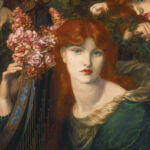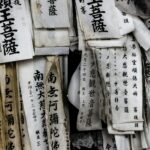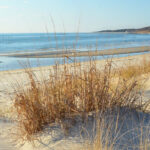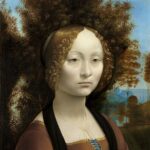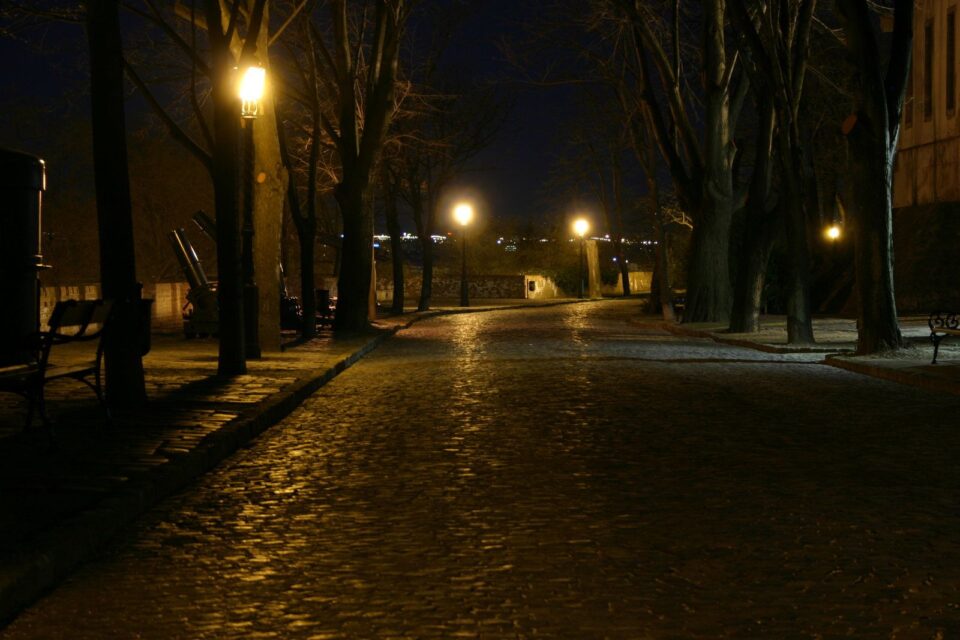
“On fences and poles were the signs and posters of the age. Men with hard eyes and stiff lips; men with mustaches and military hats; women in dresses, sleeves rolled, forearms flexed. The age the man knew not.”
“The sun isn’t chicken, it’s yellow.”— Dob Bylan
“If and only if the sun is yellow, it’s [not] chicken.” — Robert Zimmerman, PhD (Philosophy), aka The Unproving Prover
“If the sun is yellow, and is chicken a priori to its yellow-ness, and the reader, too, is yellow, and” — Robert Zimmerman, PhD’s celebrated non-proof, aka The Half-Whole Flagellation, or The Divine Strait of Messina
“Well, what is?” — Somebody Else
“For love” — R.M.N.
“For love” — В.В. Путин
“For, Love” — Drunk Uncle
“Love” — anon.
The man was. In a house he lived, a house in a city.
The city had been cut from a mold. First it was buildings. Now swarms resided there, within the limits. The city was.
The man had a cat. The cat was thin. The cat shed its fur around the man’s house. The cat slept on the man’s pillow. The cat was the man’s pet. The cat was.
The man left his house to pick up his allotment and to walk the cat. His allotment kept him full. When he ate he chewed and swallowed. He chewed with his mouth open, and dug his elbows into the table when at his table he sat. The table was wooden. Embedded in the man’s elbows were splinters. He held his mouth closed when not eating. He did not read the papers.
In the morning the man bathed. He thought then of houses, how they are built, and why. That they protect from the rain and precipitate rain, indoors. That no matter where he had stood here, he had gotten wet. And in the shower.
His cat showered with him. The cat he used as a washcloth. The man had been scratched from head-to-toe, and yet bore the scars. Shampoo was a friend and foe. Soap he left for the cat, took it himself by tertiary avenue. The dirt swirled the drain, sieved through. The built-up silt he scraped and emptied into the sink in the kitchen, where it would pass. Twice a week the buildup threatened him; twice a week he absorbed it, allowed it to cease.
The man toweled himself dry. The towel was coarse, brittle, its threads low, arid as camel hair. He dressed himself. Socks first, while standing. Then boxers. Pants. Shirt. Flannel. Shoes. Something in his pocket: nothing. His house was unlit.
In the kitchen the man ate. Oatmeal, one-fourth cup. Protein, thirty grams. Almonds, ten. Raspberries, one-hundred grams. Or blueberries. Or blackberries, when allowed. He read the paper as he ate.
The city had a problem. Thus the city had problems. Thus the city was problematic. He chewed and swallowed. The oatmeal gelatinous, the berries furry, white.
Eating awoke his organs. He returned to the bathroom, sat down cold. The bathroom’s tiles he inspected for chips, for cracks, for hair. He cleaned himself. Sometimes it took water, if he had forgotten himself in the inspection of the tiles. Sometimes not.
Midmorning the man worked downstairs. Hammer and nails. As he hammered he imagined a locus in which there existed no delimitation as to engender the concept of a hammer. This state of mind became him; each dull punch of the instrument into metal and wood inured him to the instrument’s being in his hand. The instrument was his hand.
The hypnosis was broken when his body was called again by hunger, the habit of kings and fools, and he opened his outer eye to behold the hammer, of which he held no currency. Until he now did.
Often did the man’s mind wander. Only after eating.
After the second meal—rationed yogurt, a banana or apple, fifty grams berries, fifteen grams protein—the man dressed for the cold and, in his snow hat with the earflaps, black, and his coat with the four pockets, he opened his door to the world.
The wind struck him. Ever did the wind strike. And the man had things to do.
The city was both long and short of his door. He walked, listening for nothing, hearing discretion—pants, billowing, swishing; trees, hushing; cars, sputtering, and scattering; the wind through his eyes, his ears. It was cold. His nose bore red. He heard, too, the cold he felt and felt not.
The cat walked alongside him. The cat’s spine mountainous, tall as the man’s shins. In time they would find a dog. The dog would bark. The cat would hiss. The cat, a contrarian, would run at the dog. The dog would cower, cover its neck with its paws, plant its face in the dirt. The cat would stand over the dog until the man caught up and ushered forth the era of walking on.
They would find a dog. Or a dog would find them. The city had its dogs.
On fences and poles were the signs and posters of the age. Men with hard eyes and stiff lips; men with mustaches and military hats; women in dresses, sleeves rolled, forearms flexed. The age the man knew not. The signs were imported, ratified by a higher power in the west. The man’s coat was worn at the elbows; through the wind came. The signs were red, black, white, backlit by the sun and the shadows it compelled. The war had been, would be great. An age the man knew not.
Whence appeared the barn the man and his cat stopped pacing and entered. The barn was ever full. Loud voices, louder glass. Music of the city. The man stepped over the hay, sat at the bar. Cat on his lap. He signaled the sheepherder. The herder turned his mustache to face the man. The man signaled for water. The herder frowned. Those to the man’s left and right prodded him, cajoling, pushing their own drinks upon him. The man looked ahead into the mirror behind the bar. The herder frowned. The herder brought the water. The man took it, eyes up. The herder pointed to a sign: “All charges and uncharges subject to tip.” The man reached in his pocket for coin.
The man drank the water as the people stared, angry, and sympathetic. He stood, stepped back over the hay. Left the bar.
In the sky were clouds. He heard it, the weather, in his elbows. His beard protected his expression, naught else. His height was perfect; thus perfect, too, for the wind. He stood out by not standing out. Meaning what—of meaning the man thought elsewhere. On his feet were dancing shoes; on his hands, skin.
The city penned many and one. Emotion, the man knew, was where love came into conflict with the world. The city teemed with it. He knew that psychoanalysis was the analyst’s—and the psycho’s—reaction to the situation presented. This too did the city hold and crave.
His perspective—as if there were another by which he could speak.
Amidst the city he walked. He passed dogs, cars and buses red and blue, yellowed men with brittle hair, children alone, all bastards, horses and their plopped wake, smog, dust, demons, seeds of time and progress, statues bronze and bird-stained, plaques fading, abandoned storage homes and hideaways, shoes cast asunder on the curbside, lakes of raw sewage and its cousin, half-pumped rubber balls, broken glasses, shattered glass, red lights, green lights, yellow, yellow, yellow lights, sharp as the men’s hair. He passed policemen occupied with damsels and drinks. A block up he passed Titian House, the home famous for collapsing from the inside. Speculation of water damage—leaking pipes—preponderated among the kings and the fools. The objects he passed spat upon him. He wiped them away.
All things remind of the war: rocket launches, moon-bound and otherwise, he recalled upon seeing the clefts in the sidewalks. All the spacemen’s reentries he recalled—aliens, white, bulbous-headed, the spacemen waiting for gravity to steel them or kill them, either way deliver them—upon glancing into a restaurant. The bloated zeppelins, pulsing static overhead, he recalled in the motion of closing his eyes. War cries, too: Tales of murder and heroism, of usurpation and challenge, of cold and the right men to overcome it. Of the fear which sustained the factories, and the two kinds of salt. Every child knew, was taught, the two kinds of salt. One for soup, the other for slugs.
All things remind: He had contemplated the end, the man. How it, at its most efficacious, need occur in a public place. To get them wondering.
But he did not want them to wonder. He needed them to know.
The man passed behind the park. As he walked he kicked the acorns. He was an acorn-kicker.
He drank not. Chemicals awakened molehills in him. It was the molehills that killed him.
In the park were individuals consumed. In the park there was a soup stand.
The man sat, sent his cat for soup. The cat fetched both cups—the vendor was an acquaintance. Outside the man’s house the cat served little functional purpose beyond the cowing of dogs and the fetching of soup. Inside the house the cat chased after the rat which had plagued the man and his four walls since their dawn. The man had seen the rat, once. Now he treated cat-like instincts as evidence. Outside the house the cat caught the man nothing but looks from neighbors, victimized, as they saw it, by the cat’s presence.
The man ate his third meal. He on a splintered bench, the cat on the ground. He extracted a loaf of bread from his empty coat. He slid the knife from his empty breast pocket. He cut his bread. He sipped the soup. The soup had a taste.
He chewed and swallowed, as those others in the park had done. He stood, disposed of the soup cups by feeding them to the cat. Left the park.
At the city’s crux was the Druggist’s, where rested his allotment. The man lived in the city if only for the Druggist’s, for his own sake. The lone proximity of matter. Of consequence—he, the man, was the matter, so it was said.
Towards the Druggist’s the man walked. He had read books, the man, was educated by right and unpopular virtue. And still he stepped forward. Past golden standards and open-air markets. Past used bedsheet salesmen and bootleg artisans. Past buskers with approved nomenclatures and melodies.
Towards that which would make and break him. Into that which did. The Druggist’s door clinked as it opened and shut. The many were browsing—ever was the Druggist’s crowded. They would stymie the progress of the man, if the man were not aware of his need and its physical location. The cat ran ahead, smelling for fleas, also aware.
The man thumbed the shelves on his way to the back counter. Nothing he needed could he himself make; nothing he needed was not sold on no shelf. Things were getting tendentious.
The Druggist nodded when he saw the man approaching. The man picked up his cat, raised it in front of his face to break the eye contact. He kept the cat high before him until the Druggist, who knew the man’s poison, returned from the apothecary aisles with the man’s demand. The man paid the Druggist in rusted coin, though ever did and would the man offer song in its place, pocketed the capitulated demand and hup-faced. He walked backwards along the shelves, the cat trailing forward.
Midafternoon in the city. The man had exited the Druggist’s, was there aside the boulevard. He would circle the fountain at the road’s end, he thought, before turning for home.
The boulevard was long, considering the finite. The man reached its terminus, joining the crowd.
There the man beheld. He saw. He listened. And he heard. Among the crowd, his eyes turned Northward, Northward, past the fountain to the pulpit.
“Space, ye beau,” the Gesticulator intoned. “Posh alou, yessah!” The voice echoed inside the man. He shivered.
“To strive is to dream of striving and act in the same breath! We of the city are the present and future; thus do we control the past! Heaven do we place on a plate! Space, ye beau! Space we need! Space we shall take! The old tales, made new! Made now! Breakfast on melons! Luncheon on swine! Dinner on the house!”
The man shook himself, looked around. The masses foaming, fomenting, gesticulating to no one, each scrutinizing his neighbor for guidance. High signs proclaiming the Gesticulator’s prowess; Le Bon his name, his status.
The man’s cat brushed his leg. The man turned from the pulpit—for it was five meals, not three. Five meals to the stars. He shook his cold, his allotment rattling in his pocket. He left.
The walk home soft; the walk home slow. The pulpit, echoing empty. The man’s brain, pulp. He was hungry; hunger was enough to master. In his pocket was an apple, its skin peeled. Meal four. The man ate. The cat’s spine tall, pointed, poised.
At his front door the man shed his coat. He had gone unnoticed on his return. No one had spit. No one had offered him two eyes. No one had pulled, not really. And there had been no dogs.
The man let the cat in, closed the door behind him. There were meals to eat, rats to catch. One meal; one rat. Voices to douse. Sleep to douse them.
Patrick Burr is a writer living in Latvia. He holds an MFA from the University of Washington, where he received the program’s Nelson Bentley Prize.




